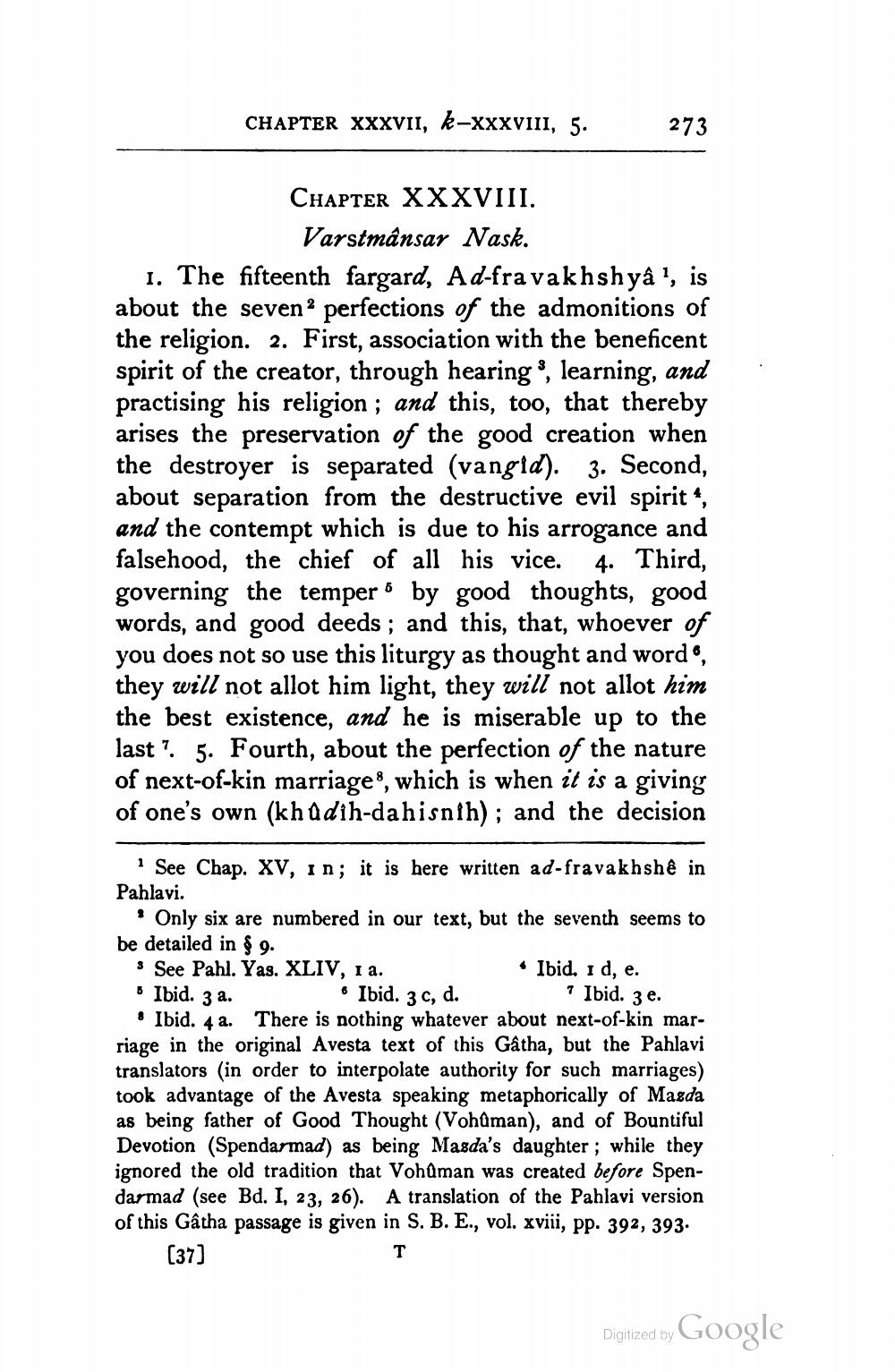________________
CHAPTER XXXVII, k-XXXVIII, 5.
273
CHAPTER XXXVIII.
Varstmânsar Nask. 1. The fifteenth fargard, Ad-fra vakhshyâ , is about the sevenperfections of the admonitions of the religion. 2. First, association with the beneficent spirit of the creator, through hearing •, learning, and practising his religion ; and this, too, that thereby arises the preservation of the good creation when the destroyer is separated (vangid). 3. Second, about separation from the destructive evil spirit“, and the contempt which is due to his arrogance and falsehood, the chief of all his vice. 4. Third, governing the temper 6 by good thoughts, good words, and good deeds; and this, that, whoever of you does not so use this liturgy as thought and word , they will not allot him light, they will not allot him the best existence, and he is miserable up to the last? 5. Fourth, about the perfection of the nature of next-of-kin marriage, which is when it is a giving of one's own (khadih-dahisnih); and the decision
See Chap. XV, in; it is here written ad-fravakhshê in Pahlavi.
Only six are numbered in our text, but the seventh seems to be detailed in $ 9. s See Pahl. Yas. XLIV, 1 a.
• Ibid. 1 d, e. Ibid. 3 a. Ibid. 3c, d.
? Ibid. 3 e. • Ibid. 4 a. There is nothing whatever about next-of-kin marriage in the original Avesta text of this Gatha, but the Pahlavi translators (in order to interpolate authority for such marriages) took advantage of the Avesta speaking metaphorically of Masda as being father of Good Thought (Vohûman), and of Bountiful Devotion (Spendarmad) as being Masda's daughter; while they ignored the old tradition that Vohuman was created before Spendarmad (see Bd. I, 23, 26). A translation of the Pahlavi version of this Gâtha passage is given in S. B. E., vol. xviii, pp. 392, 393.
(37]
Digitized by Google




